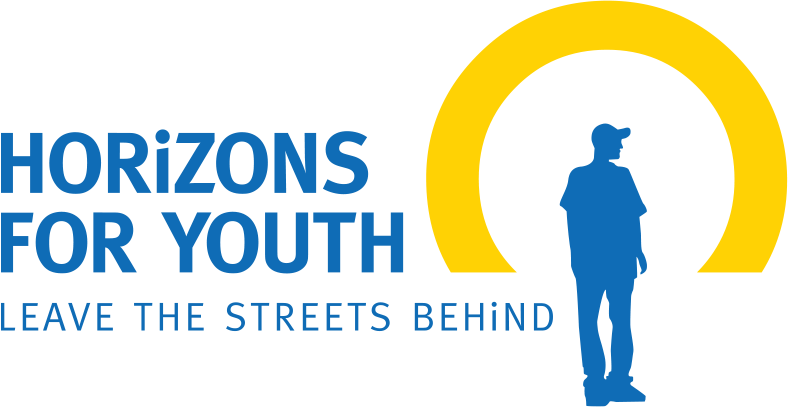As the holiday season unfolds, we reflect on the generosity that has made this year transformative for the youth we serve. Thanks to the dedication of our donors, sponsors, and volunteers, lives have been changed and futures illuminated. Read on to see how your support has brought hope and possibility to the young people at Horizons for Youth.
5 Ways to Help during the COVID-19 Pandemic and Beyond!
A Shelter Worker's Experience on the Frontlines
Despite the struggles and health risks, Horizons for Youth’s frontline workers have continued to do their jobs during the COVID-19 pandemic. Without our workers, our shelter could not operate and at-risk youth would not have a safe place to call home.
Abdul Khan is one of our amazing frontline heroes. He is the Day Program Coordinator at Horizons for Youth and has worked at our agency for 15 months. We asked Abdul about the challenges of working on the frontlines during the pandemic, and found out what inspires him to keep going
Breaking Down the Myths about Homeless Youth
There are many myths and stereotypes about homeless youth that are widely believed in our community. This misinformation perpetuates the stigma of homelessness, decreasing empathy for an already vulnerable population. Moreover, these stereotypes negatively impact the self-esteem of youth experiencing homelessness.
These myths must be dispelled to better support homeless youth and take action against homelessness.
Racialization of Poverty
Recent acts of racial violence have sparked global outrage and many conversations about systemic racism in our countries. Systemic racism means that resources, power and opportunity are systemically distributed to people who are white at the exclusion of people of colour. Racial disparities therefore occur in employment, housing, education, healthcare, government and incarceration.
Living at a Shelter During the COVID-19 pandemic
Ahmed has a serious health condition, putting him at a higher risk of complications from COVID-19. “I know I’m more vulnerable during the COVID-19 pandemic because I have a weak immune system, but I feel safe at Horizons. I feel safe because the staff treat me well. They ask me how I’m doing and really care about me. That’s why I feel good here. I really appreciate that.”
COVID-19 Increasing Rates of Food Insecurity in Toronto
Food insecurity is now the number one reason that Torontonians are calling 211, which is a directory of community, government and social service agencies in the GTA. Food insecurity is defined as a lack of access to a sufficient amount of affordable and nutritious food due to financial constraints. Previously, food insecurity was seventh on the list of reasons individuals called 211. Between April 1st and April 8th, 2020, 211 made 2,726 referrals to food banks in the city, which is six times more than during the same time period last year.[1]
More Alone than Ever
The term “social isolation” has become part of our everyday dialogue during the COVID19 outbreak. Individuals have been asked by Public Health Officials to physically distance from one another and consequently, there have been growing conversations online about the emotional challenges of spending so much time alone. For homeless youth, social isolation is not a new experience.
COVID-19: Impact on the Mental Health of Homeless Youth
Loss of income. Panic and uncertainty. Social isolation. Fear of serious illness. These are extremely stressful experiences for any person. Because of the COVID-19 pandemic, many of Horizons for Youth’s residents are experiencing these stressors…while homeless. The potential mental health impact of this crisis on our residents is alarming.
COVID-19 - Stuck in Homelessness
Many of our residents were so close to exiting the shelter system and now, their lives have been put on hold. In only a matter of a few weeks, the opportunities they had to escape homelessness have disappeared. They are now stuck in homelessness for an indefinite period of time, which is demoralizing.
Our Heroic Team during COVID-19
Our Response to COVID-19
We are in the midst of a public health crisis and youth experiencing homelessness are one of the most vulnerable populations to the spread of COVID-19. These are the actions that Horizons for Youth is taking to help prevent the spread of the virus and to support the health and well-being of our youth, staff members, volunteers, and community partners
New to Canada and Homeless
While Nabeel has lived a remarkable and inspiring life thus far, his experience of homelessness as a young newcomer to Canada is unfortunately not unique. According to a recent report published by the City of Toronto, the average number of refugee and asylum-seeking individuals who accessed Toronto’s shelter system each night rose from 643 in 2016 to 2,357 in 2019,[1] with another study finding that approximately 40% of people accessing shelter services in the city were refugees and asylum-seekers.[2] We have witnessed this increase first hand at HFY, with some youth even coming directly from the airport and our shelter being their first glimpse of life in Canada.
Thinking Differently: Reframing "Family"
It is presumed that the role of agencies that support at-risk youth, like Horizons for Youth, is to help homeless youth become self-sufficient and independent from their family. However, if ‘family’ is framed as a detriment to homeless youth, we may be dismissing some important individuals that can help youth transition out of homelessness
Life in the Public Eye: Interactions Between Homeless Youth and the Police
The frequency of contact that Ahsan* has with the police begs the question of whether another person, for instance a white blonde female like myself, would have been stopped for the same thing. Rather, it is likely that occupying low-income areas, being a male of colour and/or fitting the stereotypical appearance of a homeless person lead Ahsan to receive a disproportionate amount of attention from the police.
The ‘Would You Rather’ Question no one should answer
Extreme poverty often leads homeless youth to trade sex for food, housing and money in order to meet their most basic needs. It is estimated that one in three homeless youth participate in survival sex. “Engaging in sex as a means of survival increases exposure to potential trauma for these youth and increases their vulnerability to violence, rape” (NSVRC, 2014, p. 8). Experiences of sexual violence can trigger or worsen mental health challenges such as anxiety, depression and post-traumatic stress disorder, and can negatively impact a youth’s ability to build trusting relationships in the future.
Acceptance or Change?
In light of a 2016 study which found that 85.4% of homeless youth in Canada are experiencing a mental health crisis and 42% had attempted suicide at least once (Schwan et al, 2018) group environments like these send a message to the many HFY residents experiencing mental health challenges that they are not alone.
Breaking the Cycle of Poverty through Fitness
“Horizons for Youth is a big part of how Bootcamps for Change got started” Katie explains. “I learned on their website that they had limited funding for fitness and wellness programs, so I got in touch with their team and told them that I’m a certified Personal Trainer and would like to offer free boot camp classes once a week.”



















